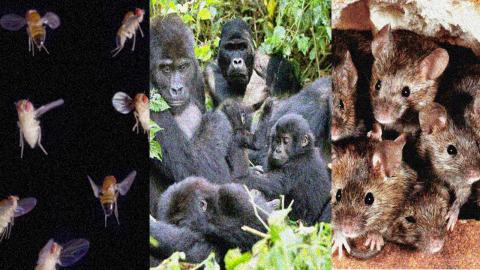
The NIA supported Research Network on Animal Models to Understand Social Dimensions of Aging , under the leadership of Jenny Tung, Duke University, Alessandro Bartolomucci, University of Minnesota, and Kathleen Mullan Harris, UNC, recently awarded its 2021-2022 pilot Project Awards. The goal of the Pilot Program is to support projects focused on animal models or comparative studies relevant for understanding the social determinants of health and aging, and to generate key preliminary data for future NIH grant applications, publications, and other scientific products. This year’s award recipients include Christi Gendron, Research Assistant Professor, University of Michigan, who explores social interactions among fruit flies (Drosphilia) as an important component of healthy aging. Her experiments provide new insights into how social interactions and their underlying neural networks directly impact aging. Stacy Rosenbaum, Assistant Professor, University of Michigan, who will use a long-term data set on wild mountain gorillas that have been monitored since 1967, to determine what constitutes early adversity in one of humans’ closest living relatives; establish whether their resiliency to maternal loss is generalizable to other sources of adversity; and determine whether they suffer health consequences of early adversity. Matthew Zipple, Postdoctoral Fellow, Cornell University, who will work with his postdoctoral advisor, Dr. Michael Sheehan, and his pilot award mentor, Dr. Jenny Tung, to build an epigenetic clock that can reliably measure biological age in house mice living outside under natural social circumstances, and apply this tool to understand the role of social adversity on individual aging trajectories.
